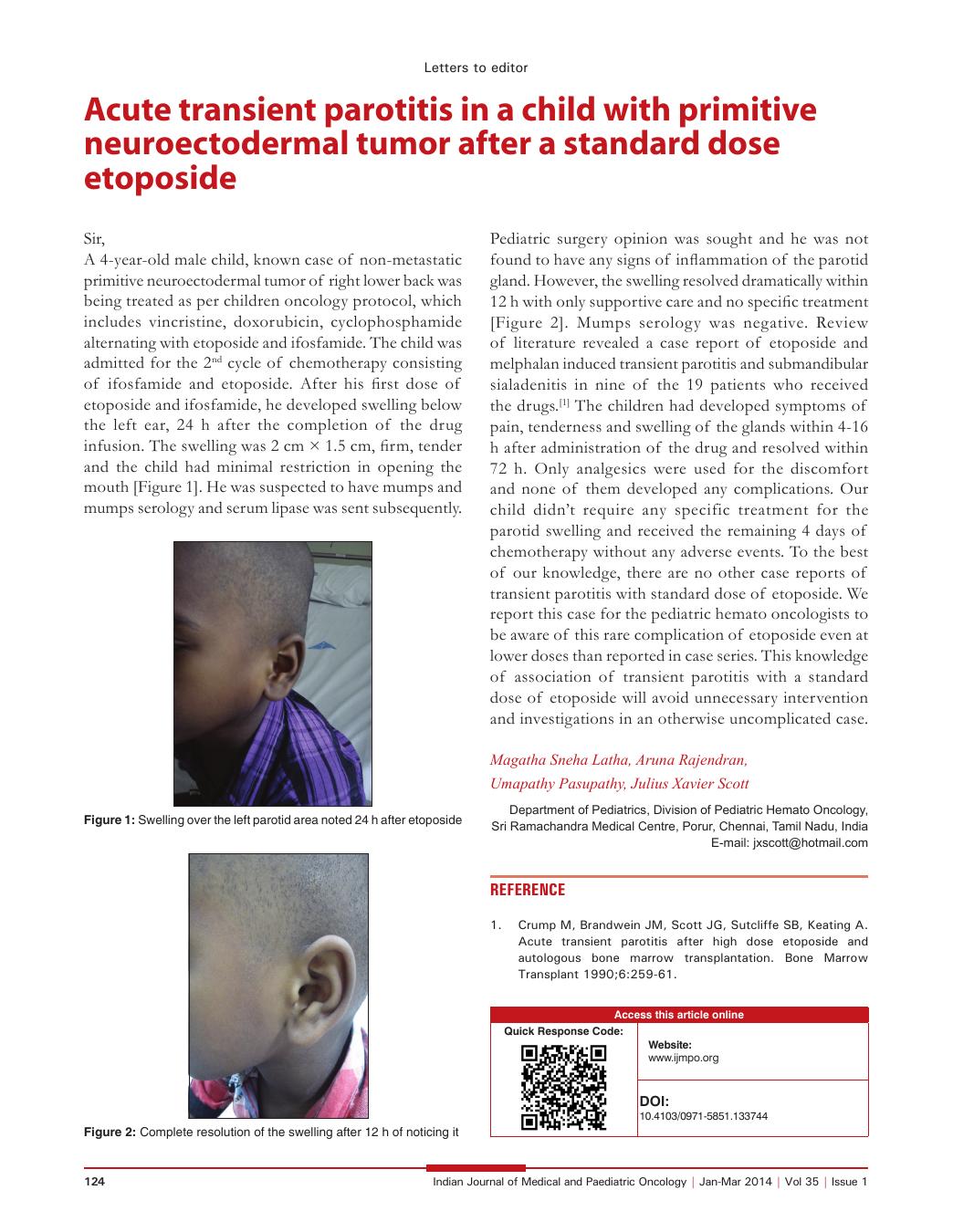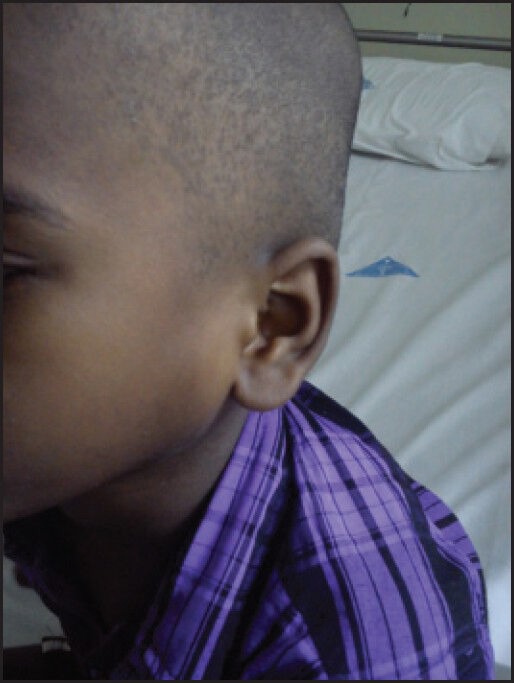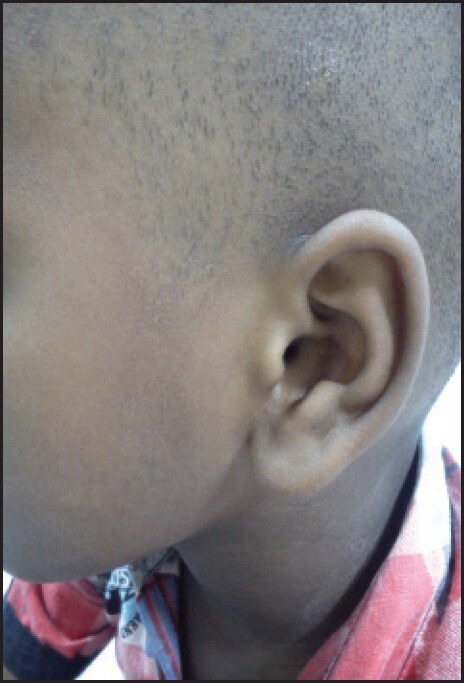Acute transient parotitis in a child with primitive neuroectodermal tumor after a standard dose etoposide
CC BY-NC-ND 4.0 · Indian J Med Paediatr Oncol 2014; 35(01): 124
DOI: DOI: 10.4103/0971-5851.133744

|
Publication History
Article published online:
19 July 2021
© 2014. Indian Society of Medical and Paediatric Oncology. This is an open access article published by Thieme under the terms of the Creative Commons Attribution-NonDerivative-NonCommercial-License, permitting copying and reproduction so long as the original work is given appropriate credit. Contents may not be used for commercial purposes, or adapted, remixed, transformed or built upon. (https://creativecommons.org/licenses/by-nc-nd/4.0/.)
Thieme Medical and Scientific Publishers Pvt. Ltd.
A-12, 2nd Floor, Sector 2, Noida-201301 UP, India
Sir,
A 4-year-old male child, known case of non-metastatic primitive neuroectodermal tumor of right lower back was being treated as per children oncology protocol, which includes vincristine, doxorubicin, cyclophosphamide alternating with etoposide and ifosfamide. The child was admitted for the 2nd cycle of chemotherapy consisting of ifosfamide and etoposide. After his first dose of etoposide and ifosfamide, he developed swelling below the left ear, 24 h after the completion of the drug infusion. The swelling was 2 cm × 1.5 cm, firm, tender and the child had minimal restriction in opening the mouth [Figure 1]. He was suspected to have mumps and mumps serology and serum lipase was sent subsequently. Pediatric surgery opinion was sought and he was not found to have any signs of inflammation of the parotid gland. However, the swelling resolved dramatically within 12 h with only supportive care and no specific treatment [Figure 2]. Mumps serology was negative. Review of literature revealed a case report of etoposide and melphalan induced transient parotitis and submandibular sialadenitis in nine of the 19 patients who received the drugs.[1] The children had developed symptoms of pain, tenderness and swelling of the glands within 4-16 h after administration of the drug and resolved within 72 h. Only analgesics were used for the discomfort and none of them developed any complications. Our child didn’t require any specific treatment for the parotid swelling and received the remaining 4 days of chemotherapy without any adverse events. To the best of our knowledge, there are no other case reports of transient parotitis with standard dose of etoposide. We report this case for the pediatric hemato oncologists to be aware of this rare complication of etoposide even at lower doses than reported in case series. This knowledge of association of transient parotitis with a standard dose of etoposide will avoid unnecessary intervention and investigations in an otherwise uncomplicated case.

| Figure 1:Swelling over the left parotid area noted 24 h after etoposide

| Figure 2:Complete resolution of the swelling after 12 h of noticing it
References

| Figure 1:Swelling over the left parotid area noted 24 h after etoposide

| Figure 2:Complete resolution of the swelling after 12 h of noticing it


 PDF
PDF  Views
Views  Share
Share

